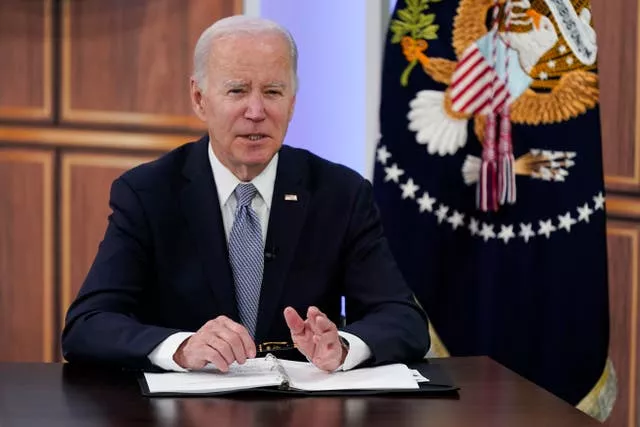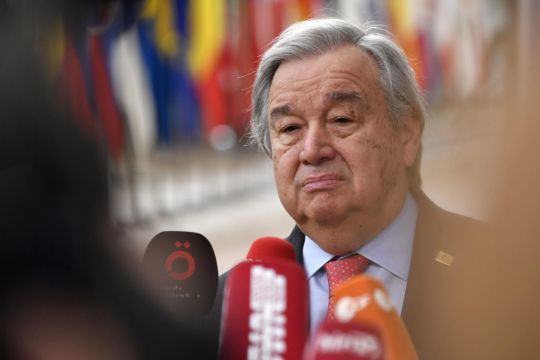UN secretary-general Antonio Guterres has bluntly challenged the climate efforts of President Joe Biden and other world leaders in a message for a White House summit.
He said that expanded oil and gas drilling and other policies of the richest countries amount to a “death sentence” for the planet.
The warning marked a public rebuke from the UN’s highest official of what he described as “the major emitters” of gases from burning fossil fuels that are heating the planet.
The challenge — recorded by Mr Guterres in a video for the White House virtual climate summit — came as Russia’s war in Ukraine and other threats to the world’s short-term oil and gas supply are leading the US and some other nations to raise production of climate-damaging oil, natural gas and coal.
Mr Biden opened the summit recounting his administration’s billions of dollars in climate efforts and by announcing a billion dollars (£800 million) in new climate finance for developing nations, as well as other recent and planned legislation and programmes.
In the US and elsewhere, however, the renewed embrace of fossil fuels is creating conflicts with the climate efforts, plans and promises.
“Geopolitical divisions must not torpedo the world’s climate fight,” Mr Guterres warned in his video.
“The science is clear: new fossil fuel projects are entirely incompatible” with keeping global warming within the limits that the US and roughly 200 other nations committed to in the 2015 Paris climate accord, said the UN chief.
Current national policies are taking the world to a level nearly twice as high, he said, calling that a “death sentence”.
Happening Now: President Biden convenes a meeting of the Major Economies Forum on Energy and Climate. https://t.co/uMzCBrTrN7
Advertisement— The White House (@WhiteHouse) April 20, 2023
“Yet many countries are expanding capacity. And I urge you to change course,” said Mr Guterres, whose calls for an immediate stop to new oil and gas drilling have sharpened since a dire report from a panel of global experts last month indicated the world is heading rapidly towards more disastrous levels of warming.
White House press secretary Karine Jean-Pierre said the US believes global warming requires “global collaboration and global action. And that’s what you saw this president do”.
Mr Guterres did not single out the US or any other nation by name, but the policies he targeted, including expanded fossil fuel production, apply to the United States, strategic partners in the Gulf and many others.
President Barack Obama initiated the Major Economies Forum as a way to get the world’s biggest economies and polluters talking among themselves about emissions cuts and climate finance. Mr Biden revived the annual summits after Donald Trump let them lapse.
This year’s event comes during Russia’s market-disrupting invasion of Ukraine and reluctance by Saudi Arabia and other oil producers to increase their short-term pumping in response. Resulting spikes in gas prices last year posed political threats for Mr Biden and other leaders in their home countries.
The US Energy Information Administration projects the US will pump a record 12.4 million barrels of crude oil a day this year and top that with 12.8 million barrels a day next year.

While praising many US climate efforts, advocates especially fault Mr Biden’s approval of the big new Willow drilling project in previously off-limits areas of Alaska, saying it will lock in increased production for decades to come.
Mr Biden in opening remarks for the virtual summit announced a billion dollars for the Green Climate Fund, an initiative that helps less-wealthy nations fortify themselves against the rising seas and increased disasters of climate change, and to develop clean renewable energy.
He also said he would ask Congress for 500 million dollars (£400 million) over the next five years to help slow the destruction of the Amazon, a vital natural reserve soaking up fumes from oil, natural gas and coal in South America.
Administration officials have been openly pessimistic about getting congressional approval for climate support abroad, especially with a Republican-controlled House.
The US and other nations are also supporting investment for still-undeveloped technologies to one day do things like capture oil and gas emissions at scale.







